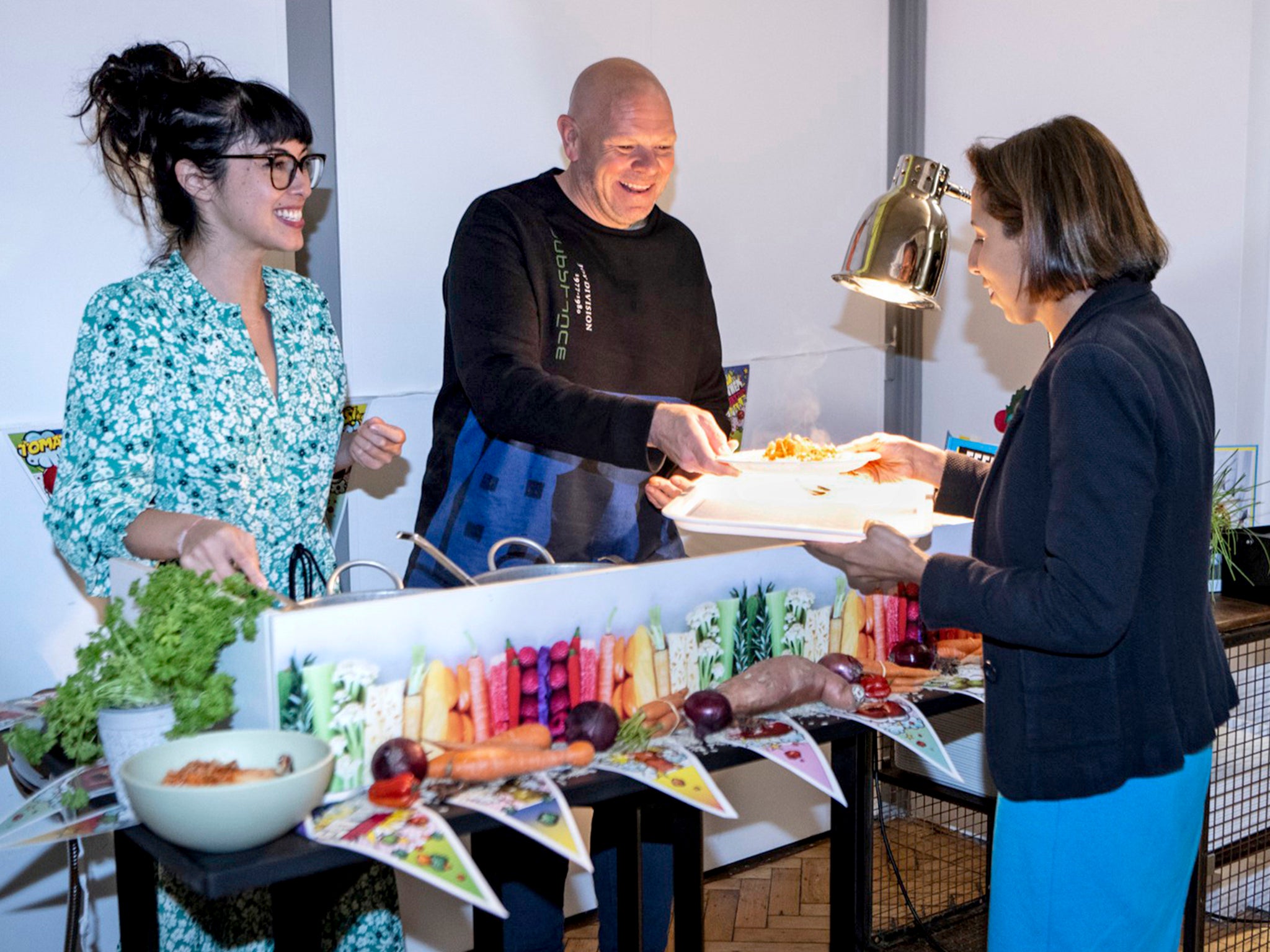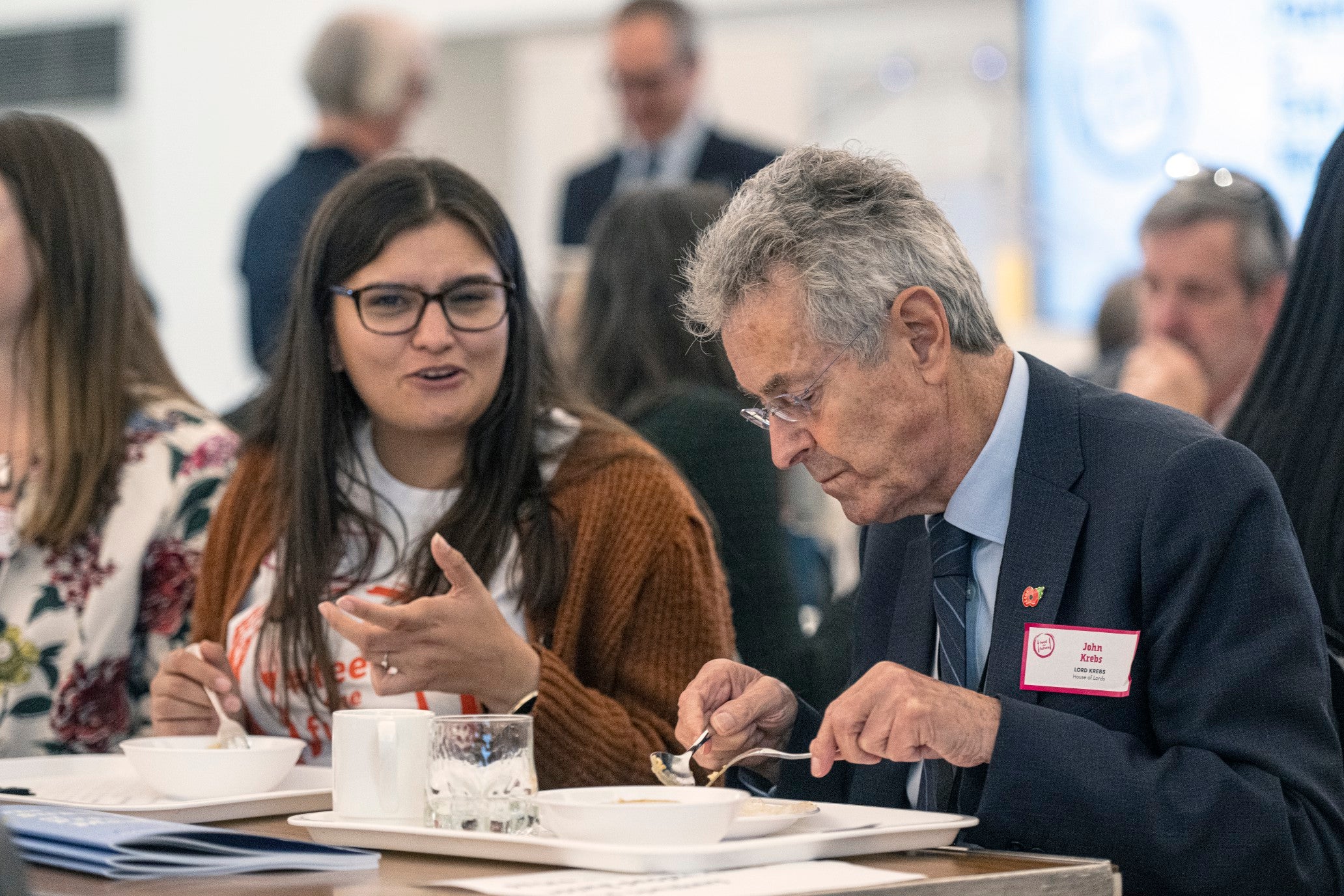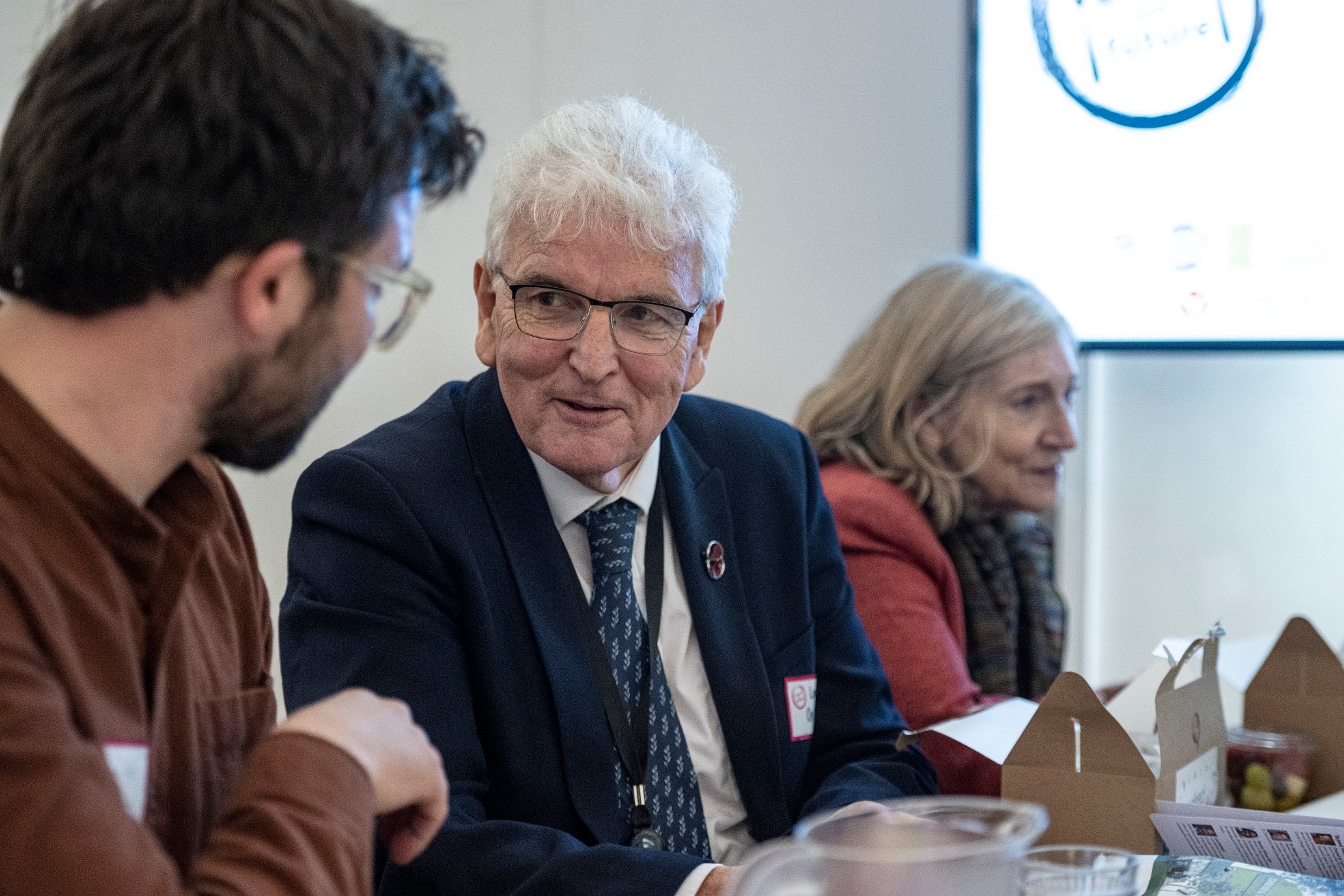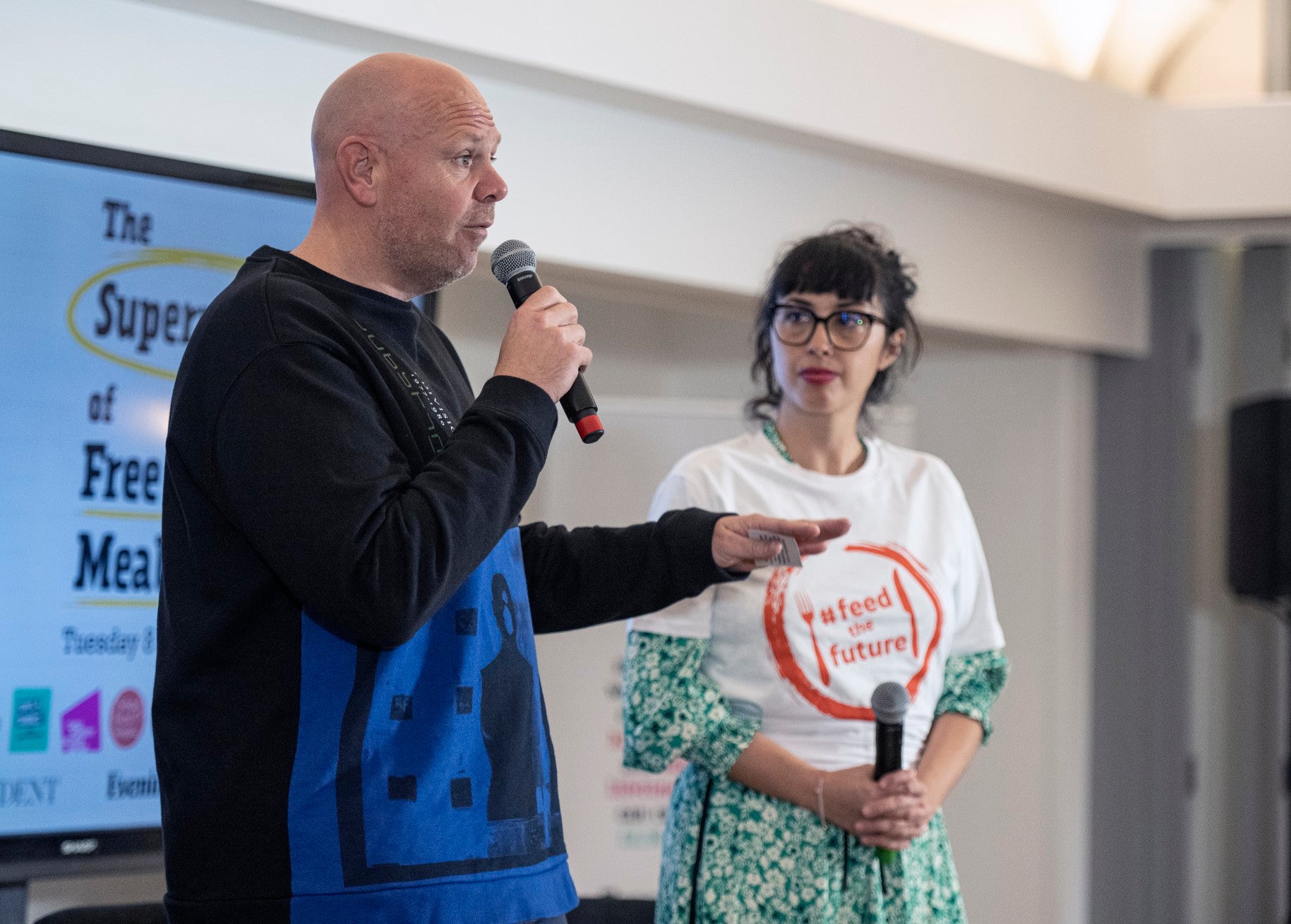‘The situation isn’t just mean – it’s senseless’: Politicians shown reality hungry schoolchildren face
Feed the Future: ‘It is very clear that investing in school meals now will lead to long-term benefits to a child’s life, health and prosperity’

Politicians have been given a stark taste of what some hungry schoolchildren face every day at an event to highlight the “superpowers” of free school meals.
To make change happen, please sign the petition by clicking here
Dozens of politicians, campaigners and charity workers took part in an event in Westminster organised by the Food Foundation, The Independent's partners in our Feed the Future campaign. The attendees were faced with the reality of life in the school canteen for many children in poverty when some were given a hot meal served by chefs Tom Kerridge and Melissa Hemsley, and others were given vouchers for a cold packed lunch.
The event highlighted the current system where children whose parents earn more than £7,400 are not eligible for free school meals, so sit alongside their friends eating vastly different quality food. Alongside a coalition of charities, we have been campaigning for free school meals to be extended to all children whose parents are on universal credit.
While Baroness Boycott and Lord Browne of Ladyton had a packed lunch of sandwiches, crisps and fruit, at the event in Central Hall, Westminster, crossbench peer Lord Krebs was given star anise beef with carrots and chickpeas followed by butternut squash cake.

Joanne McCartney, London’s deputy mayor for children and families, was also given a packed lunch. She said: “This is a small snapshot of what is happening in schools, but some children have this every single day at lunchtime and it is draining.”
Baroness Boycott said: “I have been to schools and sat with the children who had packed lunches. A lot of the meals are half of last night’s hamburger, a few old chips, or a hotch potch of bits and bobs out of the fridge. There is a sad silence around the table. The thing about food is sharing, but all of that camaraderie is missing. The situation is not just mean, it is senseless.”

Joseph Howes, chair of the End Child Poverty Coalition, was given a packed lunch. He said: “My immediate thought was that the people getting hot food must be more important than me. It is hard to imagine how schoolchildren must feel.”
A report was also launched highlighting the huge societal and economic benefits to increasing free school meal provision.
It described free school meals – which cost around £2.50 a day – as having “superpowers” and being able to help children be healthier and happier, do better in school, and earn more over their lifetime.
While packed lunches are more likely to contain confectionery, savoury snacks and sweetened drinks, the report said there is evidence that free school meals foster community and aid academic performance, supporting children’s engagement in class and future productivity. They also have a positive impact on children’s weight and help families save money.

The report said: “It is very clear that investing in school meals now will lead to long-term benefits to a child’s life, health and prosperity. This is an urgent appeal that is endorsed not just by civil society and campaigners but by the medical profession, teachers, parents, policymakers, the public at large – and by children themselves.”
London primary schools in Islington, Newham, Tower Hamlets and Southwark already offer universal free school meals. Analysis of the impact found a reduction in obesity rates, and that families on average save around £37 per month in total on food spending.
Newham mayor Rokhsana Fiaz told delegates it costs around £6m to provide universal free school meals to 14,000 primary school children in Newham. Now there is growing demand from secondary schools and the council is “working through” how that can be afforded.

Dr Nicholas Capstick, the CEO of the White Horse Federation academy trust, said: “We are seeing children coming in who are so fatigued they literally cannot work first thing in the morning. Teachers are bringing food from food banks and feeding them before they can work…In a civilised society this feels very uncivilised.”
Liberal Democrat education spokesperson Munira Wilson said: “The current rules are morally, economically and politically bankrupt, trapping families in poverty as the cost of living crisis bites. Even Michael Gove says they need to be changed.”
Join our commenting forum
Join thought-provoking conversations, follow other Independent readers and see their replies
Comments


Bookmark popover
Removed from bookmarks